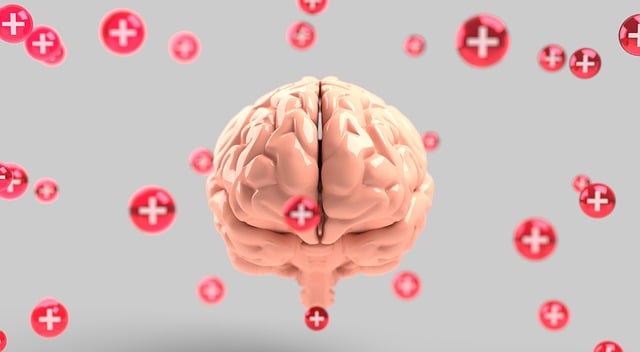Mental health workshops equip individuals with powerful tools to manage anxiety by fostering introspection, teaching mindfulness techniques, and building resilience through coping mechanisms like CBT and self-care practices. These sessions create safe spaces for community engagement, reducing isolation and promoting emotional well-being. By understanding triggers, practicing present-moment focus, adopting healthy habits, and forming support networks, participants gain control over their anxiety, transforming it from a challenging force to a manageable aspect of life.
Anxiety is a prevalent challenge, but there are effective therapeutic practices to manage it and build resilience. This comprehensive guide explores strategies to reduce anxiety and enhance well-being, focusing on mindfulness, self-care, social support, and community engagement. By understanding anxiety’s patterns and triggers, individuals can empower themselves through proven techniques, ultimately fostering mental health and resilience in their daily lives. Discover actionable steps and valuable insights in our mental health workshops designed to support your journey towards calmness and robustness.
- Understanding Anxiety: Recognizing Patterns and Triggers
- Mindfulness and Meditation Techniques for Calmness
- Building Resilience: Coping Strategies and Self-Care Practices
- The Power of Connection: Social Support and Community Engagement
Understanding Anxiety: Recognizing Patterns and Triggers

Anxiety is a natural response that everyone experiences at some point, but for some, it can become overwhelming and persistent. Understanding anxiety involves recognizing its patterns and triggers, which are unique to each individual. This process often requires introspection and self-awareness, where one identifies specific situations, environments, or thoughts that induce feelings of unease or fear. Mental health workshops play a crucial role in this journey by providing safe spaces for individuals to explore and express their experiences.
Through interactive exercises and group discussions, these workshops help participants identify personal triggers and patterns. They learn to recognize the physical, emotional, and mental cues that signal an impending anxiety attack, allowing them to develop strategies to manage and mitigate these responses. By understanding the root causes of their anxiety, individuals can begin to unravel its complexities and take proactive steps towards improving their mental health.
Mindfulness and Meditation Techniques for Calmness

Mindfulness and meditation techniques have emerged as powerful tools in navigating the complexities of anxiety management and building resilience. These practices, often taught through mental health workshops, encourage individuals to focus on the present moment, cultivating a sense of calm and clarity. By observing thoughts and emotions without judgment, one can learn to detach from anxious ruminations and gain a greater sense of self-awareness.
Meditation, in particular, has been shown to reduce stress hormones and regulate emotional responses. Simple breathing exercises, for instance, can quickly ground an individual, helping them feel more centered and composed. Regular mindfulness practices have the potential to transform one’s relationship with anxiety, turning it from a overwhelming force into a manageable aspect of life.
Building Resilience: Coping Strategies and Self-Care Practices

Building resilience is a crucial aspect of managing and reducing anxiety, as it equips individuals with the tools to navigate challenging situations. Mental health workshops often emphasize coping strategies that encourage self-awareness and emotional regulation. Techniques such as mindfulness meditation, deep breathing exercises, and cognitive behavioral therapy (CBT) help individuals identify and challenge negative thought patterns, fostering a sense of control over their anxiety responses.
Self-care practices are integral to building resilience. Engaging in regular physical activity, maintaining a balanced diet, and ensuring adequate sleep are essential for managing anxiety levels. Additionally, activities like journaling, spending time in nature, or practicing hobbies can provide much-needed breaks from stressful situations. By incorporating these strategies into daily routines, individuals can enhance their ability to cope with stress and build mental fortitude.
The Power of Connection: Social Support and Community Engagement

In today’s fast-paced world, feeling isolated and disconnected from others is a common struggle that can significantly impact our mental health. The power of connection lies in building strong social support networks and engaging within supportive communities. This simple yet profound act has been shown to be an effective therapeutic practice, offering a sense of belonging and reducing feelings of anxiety. When individuals connect with like-minded people, they create a safe space to share experiences, offer empathy, and gain different perspectives on life’s challenges.
Community engagement provides opportunities for social interaction, fostering a sense of purpose and resilience. Mental health workshops and support groups play a crucial role in facilitating these connections by offering structured environments where individuals can learn coping strategies, exchange valuable insights, and build meaningful relationships. These platforms encourage open dialogue, promote self-care, and empower people to navigate life’s stressors with enhanced emotional well-being.
Anxiety management and building resilience are crucial aspects of maintaining good mental health. By understanding individual anxiety triggers and patterns, one can effectively utilize mindfulness practices, such as meditation, to foster calmness and reduce symptoms. Engaging in self-care, setting boundaries, and prioritizing sleep further enhance resilience. Social support and community engagement play a vital role in coping with anxiety, providing a sense of belonging and connection. Incorporating these therapeutic practices into daily routines can significantly improve mental well-being, making it easier to navigate life’s challenges. Consider participating in mental health workshops or seeking guidance from professionals to learn more about these strategies and build a personalized toolkit for managing anxiety.
